Premium Only Content
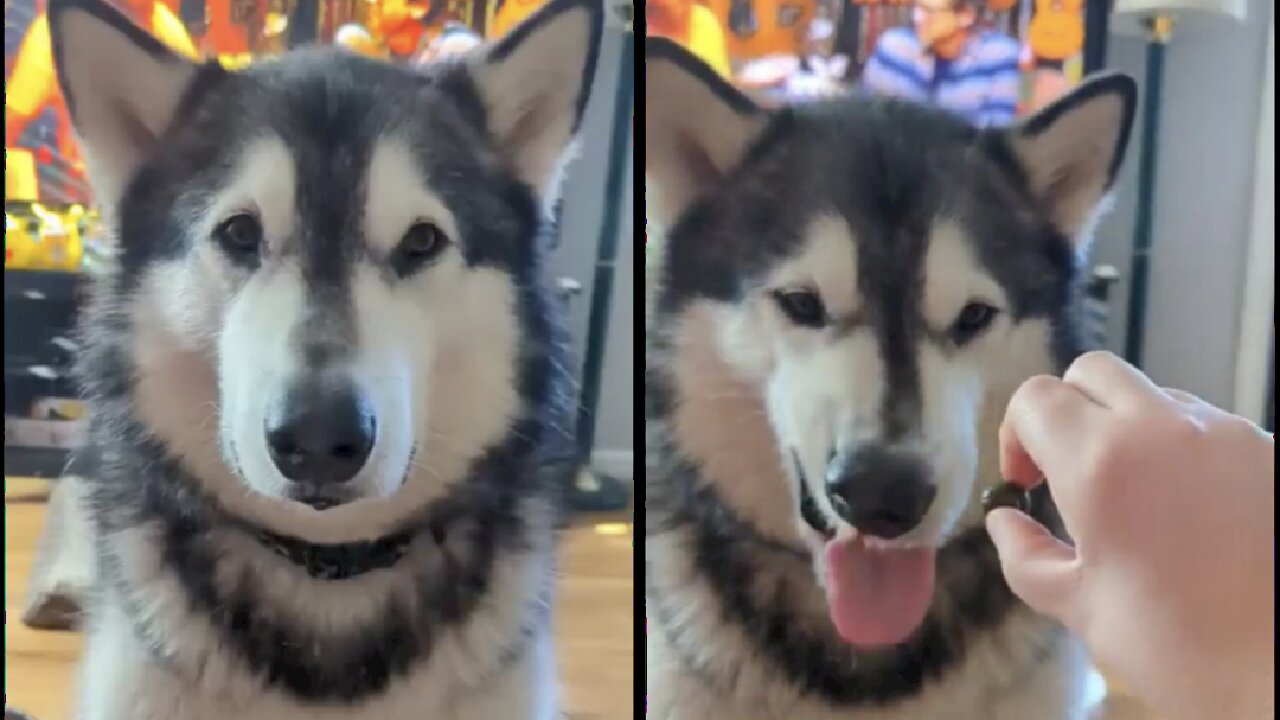
My cute husky didn't want to eat pickles watch his funny reaction
Eating Habits of Siberian Huskies:
Unlike other dogs, Huskies keep an eye on the food intake and they are not greedy when it comes to food. A husky will not eat if he is not hungry even if he has access to food. However, a husky will eat more if he is exercising more.
Diet Types
There are three main types of diets that Siberian huskies are fed: raw food, commercial dog food including dry and wet varieties, or a combination of the two. Although feeding your husky commercial dry or wet food is less expensive, lasts longer and is easier to store, many husky parents have switched their dog's diet to include more nutritional and healthier raw foods like chicken, beef, lamb, fish, fruits (no grapes, prunes or raisins) and vegetables. If you choose to feed your husky both a processed and raw diet, do not feed him both at the same meal, as they digest differently.
When To Feed
A consistent feeding schedule is essential for your husky, especially around his exercise schedule. Never feed your husky right before exercising; wait at least two hours so he won't exercise with a full stomach. Do not feed your husky 30 minutes after exercising either, as this time allows his body to cool down. Feeding him too close to his exercise routines subjects him to gastric torsion, which is when a dog's stomach twists and bloats dangerously with gas.
Food Boredom
Eating the same meal every day can become boring for your husky. If he becomes bored with his meal, there are several things you can do to alter it, such as adding a little bit of cheese or adding a few slices of meat that he normally doesn't get to eat. It's never a good idea to completely change his meal, as this may create digestive issues or he may not like the meal and refuse to eat it. To change his meal completely, do so over a period of two weeks by altering the amounts of his normal food and the food you'd like to change his meal to.
Overfeeding
Siberian huskies were bred to be working dogs in harsh conditions where food was hard to come by. Huskies' bodies are more efficient at burning calories and using nutrients, and therefore they are used to eating less than other breeds of dogs. Huskies will only eat until they are full, unlike other breeds, such as Labrador retrievers, who will eat until they fall ill. Feed your adult husky about 60 percent of what the label on his food suggests for his weight.
Feeding Puppies
Puppies are big eaters by nature, and bulldogs are no exception. Until he's about 4 months old, your puppy should eat almost twice as much as an adult. Always defer to the portioning instructions on your food package, since the nutrition content changes from brand to brand. That in mind, though, a puppy under 4 months old should eat three to four cups of food per day, divided into four feedings. Between 4 and 6 months, cut back to three feedings for a total of two and a quarter to three cups of food per day.
Amount And Frequency
After six months, your dog should be on his adult feeding regimen: one and a half to two cups of food per day, divided into two meals. Bulldogs have a tendency to gorge themselves when free-fed, and eating too much too fast can make them sick. Unlike other dogs that can self-regulate their meals, then, bulldogs must be fed on a routine schedule to keep their digestion healthy and regular.
Avoiding Obesity
Monitoring your bulldog's weight begins when he is a puppy, because this short, stout breed is prone to joint and bone problems when overweight. Since bulldogs are naturally so pudgy and wrinkly, you may have difficulty eyeballing his weight. Instead, get hands-on—literally—to see if your dog has too much junk in the trunk. When your dog is standing, wrap your hands around his midsection with your thumbs on the spine and your fingers stretching out along his sides. If you can feel his ribs without squeezing too much, he's in good shape. If not, gradually restrict his diet and make your morning walks a little longer.
Treats And Behavior
Feeding your dog doesn't stop with what goes in his bowl. You have to monitor his treat intake, too, or else his health and behavior can both suffer. Never give your dog a treat without his earning it, or he won't be motivated when you try to train him. Instead, reward him with attention like playing together or going on a walk, both of which help him maintain a healthy weight. When you do give him treats in a training context, remember not to overfeed—always defer to the portioning instructions on the package.
Thank you for watching
-
 20:40
20:40
Stephen Gardner
2 hours ago🔥TRUMP PISSED! Adam Schiff in BIG TROUBLE!
19.9K49 -
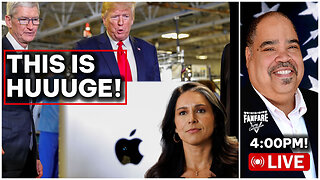 LIVE
LIVE
Barry Cunningham
6 hours agoMUST SEE: PRESIDENT TRUMP MAKES HUGE ANNOUNCEMENT! AND TULSI GABBARD DROPS BOMBSHELL INFO!
7,094 watching -
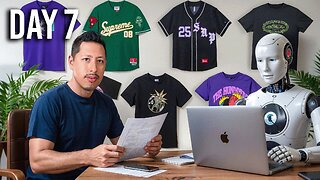 19:47
19:47
Founder @ From The Ground Up
2 days agoI Gave AI 7 Days to Build a $5K/MONTH Clothing Brand
22.5K1 -
 12:59
12:59
Michael Button
11 hours ago $1.08 earnedArchaeologists Just Found Something Incredible in Peru
14.7K7 -
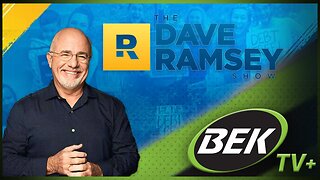 1:00:00
1:00:00
BEK TV
22 hours agoThe Ramsey Show
2.15K -
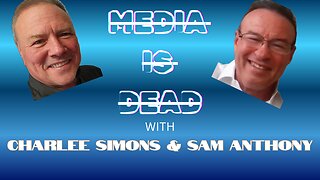 52:51
52:51
CharLee Simons presents DO NOT TALK
19 hours agoDING DONG, the MEDIA'S DEAD!
2941 -
 1:09:38
1:09:38
vivafrei
6 hours agoCanada Bans FISHING & HIKING? FBI Nabs Some Child Predators! Big Bllas Beaten in DC & MORE!
112K78 -
 1:44:55
1:44:55
The Quartering
6 hours agoActive Sh**ter At Military Base, Ghislaine Maxwell PANICS, Huge MAHA Win, Obese Park Goers
125K49 -
 1:50:09
1:50:09
Darkhorse Podcast
7 hours agoKennedy, Pharma, and the Battle over mRNA: The 288th Evolutionary Lens with Bret Weinstein and Heather Heying
54.9K8 -
 1:43:31
1:43:31
Tucker Carlson
8 hours agoWhistleblower Tony Aguilar Responds to Attacks After Exposing Israel’s War Crimes in Gaza
128K178